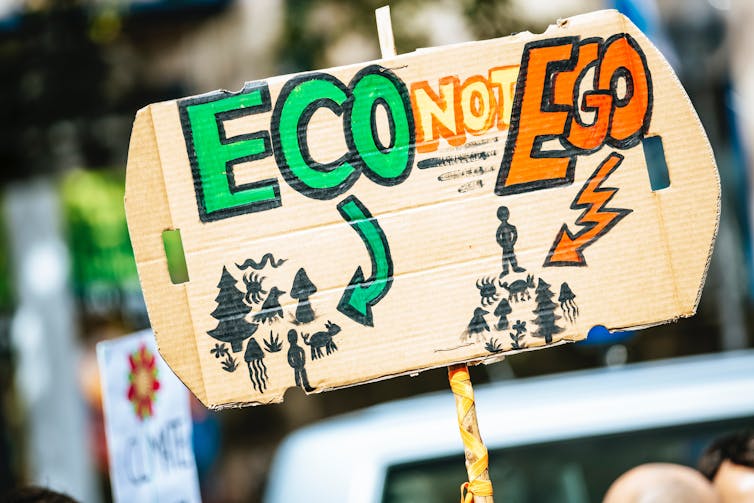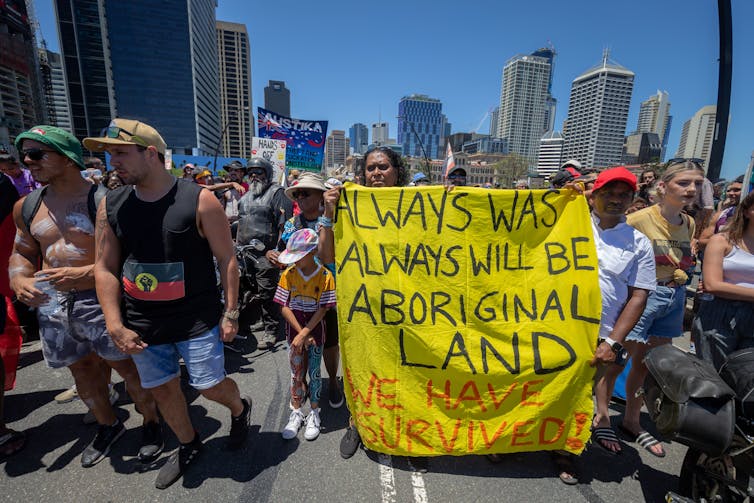POST-CAPITALISM BY DESIGN NOT DISASTER
Samuel Alexander
MELBOURNE SUSTAINABLE SOCIETY INSTITUTE
UNIVERSITY OF MELBOURNE
(Keynote address at the New Economy Network of Australia Conference)
Designing the Descent
Good morning everyone, thank you for that introduction. I’m very happy to be part of the conversation today and am grateful for the invitation.
I’ve been asked to speak today on the topic of post-capitalist political economy. That’s quite an intimidating topic, you might agree, especially since transcending capitalism is proving to be quite difficult. Capitalism certainly isn’t going to lie down like a lamb at the polite request of Left-leaning environmentalists, so what that means is that we need to think very carefully about the question of strategy; the question of where and how to invest our time, energy and resources, if we genuinely seek what this conference is calling a ‘new economy’.
Attempting to save capitalism through ‘green growth’ is increasingly recognised as little more than neoliberal ideology, the function of which is to entrench the status quo while pretending to change. And yet hopes for an imminent proletarian uprising that abolishes capitalism and erects an eco-socialist utopia governed by an enlightened centralised state seems equally misconceived. This has led critical theorist Frederic Jameson to declare that it is now easier to imagine the end of the world than the end of capitalism, although perhaps that says more about a sterility of contemporary political imagination than it does about our future. In the time available I’m going to share some thoughts on what might come after capitalism and how we might manage and drive this transition by design rather than disaster.
I say by design not disaster, hinting at a certain optimism, however it will become clear that there is, in fact, an underlying pessimism that shapes my perspective – a pessimism which some of you might share. Or, perhaps rather than pessimism, a better term to describe my orientation might be ‘apocaloptimism’, which can be defined as the view that everything is going to hell but that things might still turn out ok. While in truth I am neither apocalyptic nor optimistic, this term does evoke something of the grounded but cautious hope that will inform my talk today.
I’m going to argue that deepening crisis in the current system is probably unavoidable now, for a range of reasons – our time for a smooth transition may have passed – although I certainly won’t use that to justify inaction or despair; quite the opposite. Indeed, the instability created by systemic crisis may be one of the prerequisites for deep societal change – unsettling though that is to admit – and our challenge will be to turn deepening crises, as they emerge, into opportunities to create something other than capitalism; a post-capitalist society that better accords with our shared ideals for social justice, ecological viability, and human flourishing.
If capitalism is coming to an end in coming years or decades as it collides with various ecological and financial limits, we can ask ourselves: how can we proactively design the end of capitalism rather than wait for its collapse? Or even, if necessary, how can we design the collapse of capitalism in ways that makes the best of a bad situation? These are the questions of an apocaloptimist.
Over the last ten years I’ve been advocating for a ‘degrowth’ process of planned economic contraction, about which I’ll have more to say shortly, and today I’m going to use this alternative economic paradigm to frame and analyse the political economy of post-capitalism. I don’t expect anyone to like the terminology of degrowth – I know very well it is an ugly term – and it may never be the banner under which a social or political movement marches.
But as a slogan for justice and sustainability, I feel degrowth captures an essential insight, insofar as it directly evokes, more clearly than any other term, the need for planned contraction of the energy and resource demands of overgrown economies, including Australia, and that is an agenda that mainstream environmental and social discourse refuses to acknowledge.
In the next twenty-five minutes or so I’m going offer some thoughts on why I think the degrowth paradigm signifies the most coherent political economy for a post-capitalist society and how such a transition might unfold. In doing so I will highlight the role grassroots social movements and alternative economic experiments may need to play prefiguring degrowth economies and creating the cultural conditions for a politics and macroeconomics of degrowth to emerge.
Prerequisites for a Degrowth Transition
A couple of months ago a paper came out by a Danish political economist called Hubert Buch-Hansen, who outlined a conceptual framework that is useful for thinking about how paradigm shifts in political economy occur. He argued that there are four main prerequisites:
• First, there must be a crisis or series of crises that cannot be resolved within the existing mode of political economy;
• Second, there must be a coherent alternative political project;
• Third, there must be a comprehensive coalition of social forces attempting to produce the alternative paradigm through political struggle and social activism;
• And finally, there must be broad-based cultural consent, even passive consent, for the new paradigm.
Today I’m going to adopt this framework, add my own analytical flesh to its theoretical bones, and use it to discuss the question of a degrowth transition to a post-capitalist society. I hope this provides a useful broad-ranging analysis to get today’s conversation underway, although I’m sure I’ll raise more questions than I answer.
Capitalism is not in Crisis – Capitalism is the Crisis
The first prerequisite, then, for a paradigm shift in the existing mode of political economy is crisis – but not just any crisis. It must be a crisis or series of crises in the system that the system itself cannot resolve. I believe this prerequisite is met.
Growth economics has been called the ideology of the cancer cell, and this provocative metaphor neatly summarises the fatal anomaly in capitalism, namely, that on the one hand, it must keep growing for stability, and, on the other hand, for various ecological and financial reasons, it simply cannot keep growing. Like a chorus of others, I don’t believe capitalism can resolve this fundamental contradiction, which is creating conditions for a new, post-capitalist paradigm to replace it, and I believe that degrowth and ‘steady state’ models of economy are our best macroeconomic alternative.
The clearest way to understand the multidimensional crisis of capitalism is to grasp the so-called ‘limits to growth’ predicament, which I’ll review now, very briefly, and this will also help me frame and define the post-capitalist alternative of degrowth.
Limits to Growth: A Restatement
By all range of indicators, the global economy is now exceeding the sustainable carrying capacity of the planet. Climate change is perhaps the most prominent ecological transgression, but there is also biodiversity loss, resource depletion, pollution, deforestation, and a long list of other deeply unsustainable impacts, of which you will all be very familiar. In the haunting words of James Lovelock, ‘the face of Gaia is vanishing.’
It is important to understand the extent of ecological overshoot, because responding appropriately to the global predicament depends on a clear understanding of our situation. The ecological footprint analysis indicates that humanity would need 1.7 planets if the existing global economy could be sustained over the long term.
If the United States or Australian way of life were globalised to the world’s population, humanity would need four or five planets worth of biocapacity, implying a need to reduce our ‘first world’ impacts by 75-80%. This is an imperfect metric for ecological accounting but most critics feel that the metric underestimates our planetary impacts.
Despite the global economy being in this state of ecological overshoot, it is also known that billions of people on the planet are, by any humane standard, under-consuming. If these people are to raise their living standards to some dignified level of material sufficiency, as they have every right to do, it is likely that this will place further burdens on already overburdened ecosystems.
To make matters more challenging still, there are now 7.6 billion people on Earth, increasing by about 200,000 people everyday. Recent projections from the United Nations suggest we are heading for around 9.8 billion by mid-century and more than 11 billion by 2100.
All this calls radically into question the legitimacy of continuous economic expansion and rising material living standards in rich nations like Australia. And yet, despite the fact that humanity is already making grossly unsustainable demands on a finite biosphere, all nations on the planet – including or especially the richest nations – are seeking to grow their economies without apparent limit. It is assumed that a larger economy is always better; that ongoing growth is necessary for progress.
One does not have to be a sophisticated thinker to see that this is a recipe for ecological disaster, although alarmingly this point seems to be lost on almost all politicians and most economists.
Capitalism Cannot Resolve its Ecological Contradictions
In theory, there are two broad ways to respond to the limits to growth predicament within capitalism. The first is to try to create a form of capitalism that deliberately stops growing and actually voluntarily contracts in order operate within sustainable limits. The problem here is that there are various growth imperatives built into the structure of capitalism, which makes the notion of ‘degrowth capitalism’ a contradiction in terms, to be distinguished of course from capitalism in recession, which is unplanned economic contraction.
Therefore, the only other means of resolving the limits to growth predicament within capitalism is to radically decouple economic activity from environmental impact through what is called ‘green growth.’ The hope here is that technological innovation, market mechanisms, and efficiency improvements will reduce energy and resource demands even as the economies continue to grow. Nice in theory, perhaps, but what is happening is that the absolute reductions in energy and resource demands needed for sustainability are not occurring, and as the global economy seeks ongoing growth, absolute decoupling gets harder and harder to achieve. Efficiency without sufficiency is lost.
This brings us to the most egregious flaw in growth economics, which is the apparent failure to understand the exponential function and its ecological implications. Post-growth economist Tim Jackson has shown that if the OECD nations grew their economies by a modest 2% over coming decades and by 2050 a global population of nine billion had achieved similar income per capita, the global economy would be 15 larger than it is today. It is obvious that ecological limits will not permit that scenario to eventuate – even an economy twice as large as today’s economy would surely wreak ecological havoc. The critical point is that the degree of ‘decoupling’ required to make ongoing growth ‘sustainable’ is simply too great.
So capitalism wants or needs what it cannot have: that is, limitless growth on a finite planet. This ecological predicament is the defining contradiction of capitalism in the 21st century, insofar as growth is now causing the problems that growth was supposed to be solving. This suggests that the first prerequisite of a paradigm shift in political economy is well and truly met: capitalism is facing a multi-dimensional crisis that capitalism cannot resolve, and therefore, sooner or later, it will come to an end. The question of our time, as stated in my introductory comments, is how to make the transition beyond capitalism by design rather than disaster.
The crisis of ecological overshoot also provides insight into what any alternative must look like. Broadly speaking, the implications here are clear but radical: if the global economy is to operate within the sustainable carrying capacity of the planet, this requires (among other things) the richest nations to initiate a degrowth process of planned economic contraction, on the path to a ‘steady state’ economy of stable and sustainable biophysical throughput.
Obviously, the poorest nations would also need to achieve some ‘steady state’ in time, but first their economic capacities must be developed in some appropriate form to ensure basic needs for all are met. But my focus today is on the wealthy capitalist nations, including Australia.
An Alternative Political Project
The second prerequisite for a paradigm shift in political economy – for a degrowth transition, in particular – is the existence of an alternative political project. Rather than try to defend this alternative political project, I’m just going to state it, or one version of it, in order to show that an alternative post-capitalist political project is beginning to take form.
The following policy agenda is, in my view, both coherent and attractive, but it will soon become clear to everyone how disconnected it is from political realism in Australia today. Of course, I would argue that this is an indictment of mainstream politics, not the theory of degrowth. However, the political and social unpalatability of a deep green sustainability agenda is a point to which I will return, because it has implications on the question of strategy. But as an exercise in political imagination, these are the policies I would advance if I were benevolent dictator of Australia:
• Alternatives to GDP: First, any political transition beyond capitalism requires transcending the GDP fetish and establishing better and more nuanced ways to measure societal progress, such as the Genuine Progress Indicator. Post-growth measures of progress like this open up space for political parties to implement policy and institutional changes – including those which I am about to review – which would genuinely improve social wellbeing and enhance ecological conditions, even if these would not increase and perhaps even decrease GDP.
• Diminishing Resource Caps: If the rich, overgrown economies are serious about moving toward a just and sustainable human inhabitation of Earth, then first, we must acknowledge that we are hugely over-consuming our fair share of global resources, and second, we must institute diminishing resource caps which put strict limits on national resource flows. Fortunately, this would incentivise the efficient use of resources and dis-incentivise waste, and lead to degrowth in ecological impacts.
• Reduced Working Hours (in Formal Economy): One obvious implication of diminishing resource caps is that a lot less resource-intensive producing and consuming would take place in a degrowth economy. This would almost certainly lead to reduced GDP. To avoid the unemployment that typically flows from declining GDP, a degrowth economy would reduce work in the formal economy and share available work amongst the working population (I will return to the question of informal or household economies in the next section).
• Rethink Government Spending: Currently, as a general statement, governments shape their policies and spend their money in order to promote economic growth. Under a degrowth paradigm, it follows that the ways government spend their funds would need to be fundamentally reconsidered. For example, fewer airports, roads, and tanks; more bike lanes and public transport. How we spend our money is one way to vote for what exists in the world.
• Renewable Energy Transition: In anticipation of the foreseeable stagnation and eventual decline of fossil fuel supplies, and recognising the grave dangers presented by climate change, a degrowth economy would divest from fossil fuels and invest in a renewable energy transition with the urgency of ‘war time’ mobilisation. This will be much more affordable and technically feasible if energy demand across society is greatly reduced, and that is a key feature of a degrowth society. The energy transition needed cannot just involve ‘greening’ the supply of energy, it must also involve greatly reduced demand. This means anticipating and managing what David Holmgren calls ‘the energy descent future’.
• Banking and Finance: Our systems of banking and finance currently have a growth imperative built into their structures. Any degrowth society would have to create systems that did not require growth for stability. Debt jubilees would probably be required, especially with respect to the poorest nations. Banking and finance aren’t areas of my expertise, so I’ll move on before I get into trouble. But the point is that any post-growth transition is going require deep changes to the most fundamental banking, monetary, and financial institutions of capitalism.
• Population Policies: This is always controversial territory, especially in an age of Trump, but the logic is compelling. As a population grows, more resources are required to provide for basic needs. As Paul Ehrlich once said: ‘whatever problem you’re interested in, you’re not going to solve it unless you also solve the population problem.’ I won’t pose specific policies, my point is that we need to discuss this topic openly and with all the wisdom and compassion we can muster. This must be part of any coherent politics of sustainability in recognition that we live on a ‘full Earth’.
• Distributive Justice: Last but not least, environmental concerns cannot be isolated from social justice concerns, both nationally and globally. The conventional path to poverty alleviation is via the strategy of GDP growth, on the assumption that a ‘rising tide will lift all boats.’ A degrowth economy would recognise that a rising tide would sink all boats, and thus poverty alleviation would be achieved much more directly. Rather than growing the economic pie, a politics of degrowth would slice the economic pie differently through redistribution of wealth and power. Prominent policies in this space include the notion of a Universal Basic Income, while others argue for a ‘job guarantee’. Either policy would go a long way to directly eliminating poverty, with funding supported by a maximum wage, wealth taxes, and land taxes that sought to reduce inequality.
These policy platforms – all in need of elaboration and discussion – are coherent political, economic, and social goals if a transition to degrowth society were recognised as necessary. Although each of these policies could take various forms, and there is, and should be, debate within the degrowth movement and beyond about various ways to structure a post-capitalist society, my present point is simply that a relatively coherent and developed alternative politico-economic project is emerging to replace the capitalist paradigm. So, the second prerequisite for a paradigm shift is also arguably present, which is to say: alternative structures exist.
Nevertheless, as implied above, I am the first to admit that this policy platform, coherent though it may be, is so unpalatable to the dominant cultural consciousness that it would essentially be political suicide for any political party to try to implement it. In other words, what is arguably politically necessary is both socially and politically unthinkable, which is one reason, no doubt, for our current state of despairing political paralysis.
Because of this situation, whereby the politically necessary is unthinkable, I would argue that the policy platform outlined is unlikely to initiate a degrowth transition, but will only ever be the outcome of social movements – social forces that emerge out of crisis or a series of crises and which actively create the cultural consciousness that see policies for degrowth as both necessary and desirable.
It is through crisis that I see the citizenries in affluent societies being shaken awake from the depoliticising effects of affluence. Encountering crises can play, and might have to play, an essential consciousness-raising role, if it triggers a desire to learn about the structural underpinnings of the crisis situation itself.
While I do not deny the need for, and desirability of, deep structural changes in the nature of our economic and political systems, what I am proposing is that a post-capitalist government may only be the outcome, not the driving force, of a transition to a just and sustainable society, and that our best hope for inducing a degrowth transition by design is to build a post-capitalist economics ‘from below’, within the shell of the current system that is currently in the process of deteriorating. Waiting for governments would be like waiting for Godot – a tragi-comedy in two acts, in which nothing happens, twice.
Support from a Comprehensive Coalition of Social Forces
This leads me to the third prerequisite for a degrowth transition, and that is that it must have support from a comprehensive coalition of social forces. I can be especially brief on this point, important though it is, because this conference itself presents a diverse portfolio of such social forces. It seems to me that many if not most of the sessions throughout the weekend are inspiring examples of post-capitalism in practice, in the sense that they are exploring modes of economy that are transcending the profit-motive for the common good, or simply building new forms of informal or household economies ‘beyond the market’. These can easily be seen to be prefiguring aspects of a degrowth economy, even if this terminology is not used.
I’ll just mention four key features of post-capitalism that I see emerging from the grassroots up, features which I feel must scale up for a degrowth economy to emerge:
• First, non-monetary forms of the sharing economy, whereby communities self-organise to share resources in order to save money and avoid significant amounts of production. Indeed, this is a key feature of why a degrowth economy could still thrive even when contracting: produce much less but share much more. This is part of what efficiency means in a degrowth economy. We can create common wealth through sharing.
• Second, a degrowth economy is likely to require a transformation of the household economy, away from merely being a place of consumption and into a place of production and self-provision. On this topic there is no better place to look than the work of permaculturist, David Holmgren, who is speaking at various times throughout the conference and whose insights here are utterly indispensable. I won’t attempt to anticipate what David will do perfectly well in later sections, other than to note two reasons why a resurgence of household economies is central to a degrowth paradigm shift: First, by producing more within the household, less time is needed to work in the formal economy, leaving more time outside the market for social activism and community engagement. This strategy is about escaping capitalism in order to erode it, that is, building the new economy within the shell of the old. Secondly, if financial crises deepen in coming years, the household economy may be an essential means of meeting basic needs, so the task is to prepare now for what may well prove to be harder economic times ahead. We should aim for sustainability, but we may have to settle for resilience.
• A third key feature a degrowth economy involves significant localisation of the economy, moving toward an economy where local needs are predominantly met with local resources, shortening the chain between production and consumption. There is a session on bioregional economies tomorrow morning, which looks like it also draws on Kate Raworth’s brilliant book, ‘Doughnut Economics.’
• Finally, for want of more time, I’ll just note that any post-capitalist economy is going to require new forms of business enterprises, moving away from profit-maximising corporations which are often owned by absentee shareholders, toward an economy where worker cooperatives, community enterprises, and not-for-profit models are the dominant forms of economic organisation, paying people living wages but reinvesting surpluses back into the community. Again, there are various sessions that touch on these issues, issues that speak to the goal of creating economic and social systems in which more wealth and power are held in common, rather than concentrating it in private hands.
It seems to me that these alternative modes of economy, and many more besides, are bubbling everywhere under the surface, which is a hopeful sign, but one must also admit that often these transgressive experiments remain small and marginalised by the dominant modes of economy. So, in terms of the third prerequisite for a post-capitalist transition, we might have to conclude that the social forces are mobilising but have not yet been able to scale up to positively disrupt the dominant paradigm. Presumably one of the purposes of this conference is to help change this.
Cultural Consent: The Sufficiency Imperative
The final prerequisite for a post-capitalist degrowth transition is broad-based cultural consent. Passive consent may suffice here, without the majority of people actively seeking degrowth.
This really is a critical element in any planned transition in political economy and one that currently does not exist in terms of degrowth. It seems that the majority of people, certainly in Australia, either do not think degrowth (or what it represents) is necessary or, if they do, they do not like what it means in terms of reduced and transformed consumption and production practices.
I think there are two main reasons why culture is not ready to embrace degrowth. The first reason is a deep-seated techno-optimism that shapes cultural thinking about environmental problems. This view assumes that technology and market mechanisms will be able to resolve the crises of capitalism without system change and without even much in terms of lifestyle change.
In other words, the zeitgeist of our times seems to be that consumer affluence is consistent with justice and sustainability, because it is assumed that efficiency improvements in modes of production will be able to produce ‘green growth’ without having to rethink consumption practices.
Although this techno-optimistic blind spot is a major obstacle to degrowth, I hold some uneasy confidence that as capitalism continues to collide with ecological limits in coming years and decades, the case for degrowth will only become clearer to more and more people, which could act as a mobilizing force.
However, even if the crises of capitalism deepen and the majority of people come to desire a post-capitalist political economy, it does not follow that a degrowth economy is what they would demand (Buch-Hansen, 2018). This points to a serious cultural obstacle to a degrowth transition: the fact that the dominant conception of the good life under capitalism is based on consumer affluence. It seems to me that there will never be a post-capitalist politics until there is a post-consumerist culture that is prepared to embrace material sufficiency as a desirable way of life. Herein lies the importance of the voluntary simplicity, simple living, or downshifting movements. Although in need of radicalisation, these movements or subcultures are beginning to create the cultural conditions needed for a politics and economics of degrowth to emerge.
It All Depends on the Ideas (and Practices) that Are Lying Around
Let me conclude. When the crises of capitalism deepen – perhaps in the form of a new financial crisis or a Second Great Depression – the task will be to ensure that such destabilised conditions are used to advance progressive humanitarian and ecological ends, rather than exploited to further entrench the austerity politics of neoliberalism. I recognise, of course, that the latter remains a real possibility, as did the arch-capitalist Milton Friedman, who expressed the point in these terms:
Only a crisis – actual or perceived – produces real change. When that crisis occurs, the actions that are taken depend on the ideas that are lying around. That, I believe, is our basic function: to develop alternatives to existing policies, to keep them alive and available until the politically impossible becomes the politically inevitable.
I’m not often in complete agreement with Milton Friedman, but on this point I am. Our basic function – and I’m talking to we, the people, gathered in this room – our basic function is to keep hopes of a radically different and more humane form of society alive, until what today seems impossible or implausible becomes, if not inevitable, then at least possible and perhaps even probable. And as I look through the schedule for the rest of this conference, ‘the ideas that are lying around’ and indeed ‘the practices that are lying around’ look so strong and convincing that it tempts even this apocaloptimist into becoming a plain, old-fashioned optimist.
Thank you.








